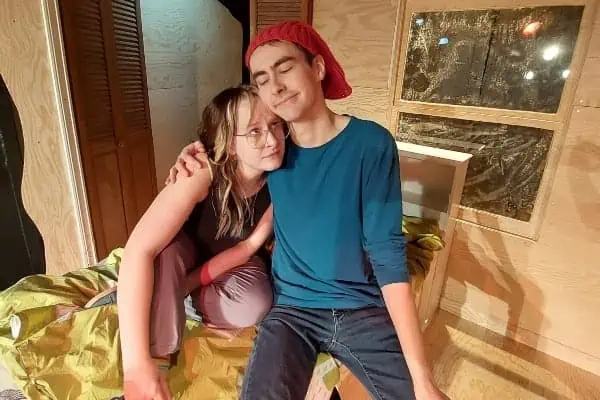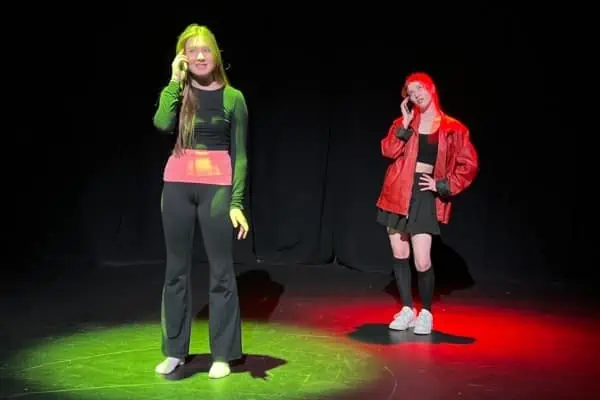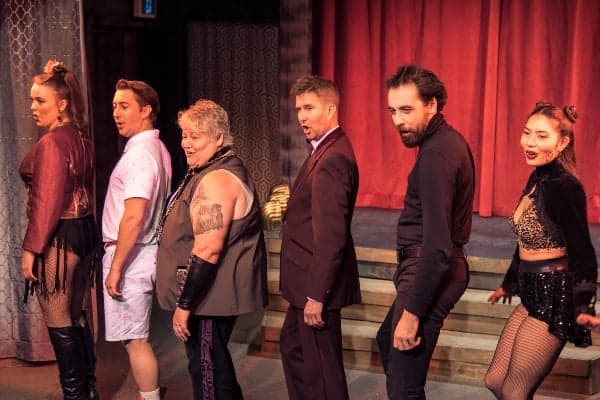Did you just say, “storysmithing”?
“Yeah,” says Aaron Janke, his arms still stretched out in the telling of his upcoming introactive theatre project.
But he wants to keep explaining the plans of his troupe and he was on a roll … and I was interrupting. Throwing out the possibility that “storysmithing” might be hyphenated, he quickly carries on.
He explains that those not in the “theatre” for the performance just might see two people skipping down Main Street, or engaged in a running argument, or dancing … with 15 or 20 people following behind, listening to every word.
Aha! The audience will be listening but they will also be making suggestions on where the lives of these two characters started from and where they might go.
At the very beginning, at Baked Café, the audience meets Fiona, played by Gwendolen Gower, and Stephen, played by Logan Larkin. The two characters are a blank slate and so the audience helps decide if they are “comfortable in their clothing or not? what is their favourite colour? did they have a good morning?”
Then the audience will decide on their motives, their secrets or convictions.
Leading this discussion with the audience will be Janke, who is The Guide.
The play, Crossroads, is just a day in the life of these two people.
As a third-year student of creative writing at Concordia University, Janke knows that any story needs these elements of structure … then something happens and there is an interaction and then a decision has to be made for resolution.
That is why The Guide will lead the audience into creating that “something happens”. It could be an unwanted pregnancy, infidelity or even a difference in religion.
“Change or evolution,” says Janke of this important element that is introduced. “Otherwise, what’s the point of seeing the play?
“It’s a day in the life, but it’s an important day in the life.”
Just as the story could go anywhere, the actors could go anywhere. All that is really known is that, at some point, the actors will probably leave Baked Café and walk (or run or skip or dance) to another location.
Poor Aaron Janke. He really wants to say where they will go next, but this is the nature of interactive theatre: the characters will go where they need to go, but it needs to be planned out (sort of) so that they won’t be trespassing and so that the audience can still follow.
Pondering the possibilities is an interesting exercise. Janke says it is very possible that ideas could be deliberately given to the characters that mirrors difficulties another couple in the audience is going though. “Why not?” he shrugs.
However the story unfolds, no two nights will be the same.
There you have the definition of “storysmithing” (one word, we decide … multiple-word nouns usually end up as one word).
Interactive theatre, like its close cousin, improvisational theatre, is a challenging art form: “It challenges you to have all your wells of creativity open,” says Janke, “all your channels.”
The actors must have a ready catalogue of reactions and lines … or they must lose themselves in the character to react as the character would react … or a combination of both.
Rehearsals have not taken the form of staging and memorization. Instead, they have been brainstorming sessions and idea sharing.
Crossroads will be performed Thursday and Friday, Aug. 7 and 8, at 8 p.m., starting at Baked Café. There will be other shows, but the times haven’t been decided yet.
PHOTO: RICK MASSIE [email protected]




